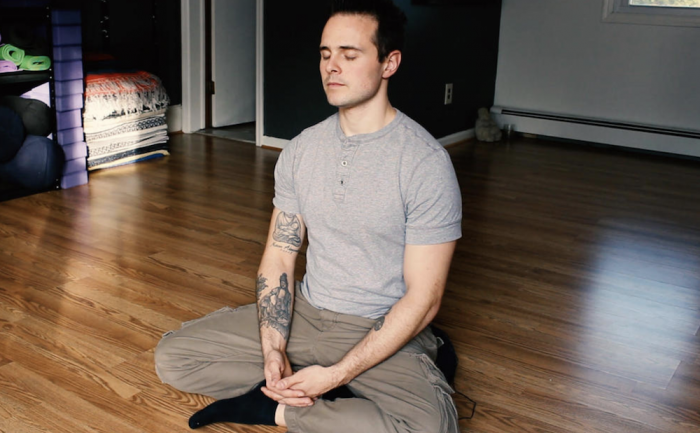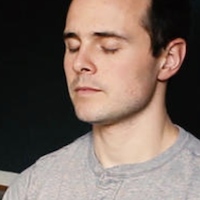We’ve all experienced hope, and for many of us, it plays a major role in our lives.
For the religious folks, hope may be found in the form of redemption, or a new-world order. In the political realm, it may be hoping for a certain president or party to take power, or for major changes to take place in the country.
Many times, hope acts as a feeling of security, letting us know things will be getting better (at least hopefully!).
We all understand what hope is. But to be sure I understood what it actually meant, I looked up the dictionary definition. Hope is defined as “a feeling of expectation and desire for a certain thing to happen.” Looking at the examples I listed above, this clearly seems to be accurate.
Hope, then, is an aversion or feeling of dissatisfaction with someone or something in this moment, with a desire for that thing to be better, different, easier, or more pleasant at some future time. Makes sense!
But as Buddhists, or at least as meditation practitioners, does hope have its place? Is it truly useful? Does it lead to freedom and peace? Or does it rather keep us stuck in the wanting mind? Is the most courageous thing we could do actually be giving up hope?
Could we become completely and utterly hopeless, surrendering fully to life as it is in this moment—pleasant or not? On the other hand, could it be possible to hold on to hope, but with a mind fully at ease with the present situation? These are some of the questions I’d like to explore.
According to the Buddha, the cause of our suffering is tanha, typically translated as thirst or craving. This craving could be defined as a movement toward or away from a person, place, or experience. It doesn’t include just simply wanting (attachment), but also not wanting (aversion). Whichever it is, both surely seem to be a movement away from the direct experience of this moment.
If hope pulls us away from accepting life as it is right now, would it not be considered another self-cherishing thirst? What happens when the future moment one hopes for never arrives? Can we hold on to hope without attaching to an outcome?
Chögyam Trungpa spoke often about hopelessness as a great place to be in our practice. He felt this meant that the ego-mind had given up completely and finally surrendered to the groundlessness of our situation. Without all the grass-is-greener, fear-based ideas of some other time, some other place, the practitioner can finally focus on what’s true—what life is actually presenting them with in this moment.
Then the question becomes: how do I relate to just this? Or, put another way: what is this moment asking of me? Ease and well-being are only possible when we have let go of the hope for something else and finally settled into the only place we can possibly be—our life in the here and now.
I struggled for a long time with feelings of emptiness. Much of my life was acting out in ways to cover it over. I tried filling my life with excitement, novelty, and change trying to maintain a life of thrills. Of course, the thrills would never last, and I’d end up exactly where I began—empty! I hoped that therapy, meditation, and spiritual teachers/books would finally help me be rid of this horrid feeling that seemed to be as prevalent as my shadow on a sunny day.
I wasted many years hoping not to feel the way I was, in fact, feeling. There was never any peace.
At some point, it clicked. What I was feeling was clearly not going anywhere, and all attempts to cover it up or remove it were futile (and actually seemed to make it worse!). Finally, I came to a moment of hopelessness. Maybe this is a part of me I will have to experience the rest of my life, I thought. Maybe this won’t go away.
In that moment, peace became a possibility. I was no longer warring with this painful aspect of myself, but rather was trying to understand how to make friends with it.
From that point on, I decided to begin practicing a path of “how to relate to this” rather than one of “how can I get rid of this.” And in giving up the hope that my suffering will go away, I was able to turn toward it, make friends with it, and ultimately find peace within it. I was no longer living life from my emptiness, but instead relating to it with warm, compassionate attention. Paradoxically, when I stopped trying to get rid of it, it slowly began to go away—and although it occasionally comes back for a visit every now and again, I live mostly free from its grips.
In my situation from above, hope actually blocked me from transforming my suffering—but does this mean we have to abandon hope all together? According to Norman Fischer, perhaps not. In his book Solid Ground: Buddhist Wisdom for Difficult Times, he writes:
“Accepting suffering as part of our lives doesn’t mean we give up hope or stop wanting some things to be different. For example, if someone you love is diagnosed with cancer, of course you will hope and search for a cure. You can accept the fact of the diagnosis at the same time that you do everything possible to ameliorate it. Acceptance is not resignation. Acceptance is a lively engagement with conditions as they are.”
Perhaps, then, hope is possible, as long as it is a “lively engagement” from a place of acceptance, rather than a desperate attachment to an outcome.
Whether we hope or not, one thing is certain: whatever life is presenting us is the reality of the moment, and our hopes for life to be other than what it is has the potential to pull us away from that.
You may be able to hold on to hope while fully accepting the present experience, but I ask you to consider, even for only one breath, becoming completely hopeless—and let go into your life just the way it is, right now.


 Share on bsky
Share on bsky





Read 8 comments and reply